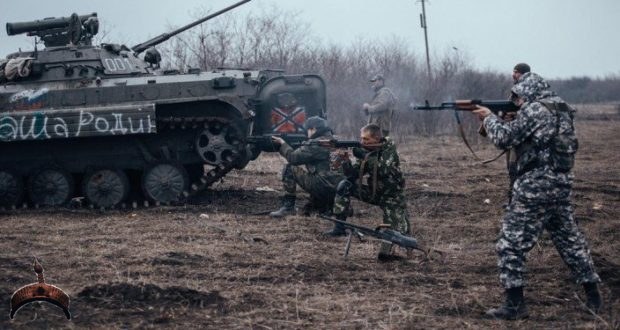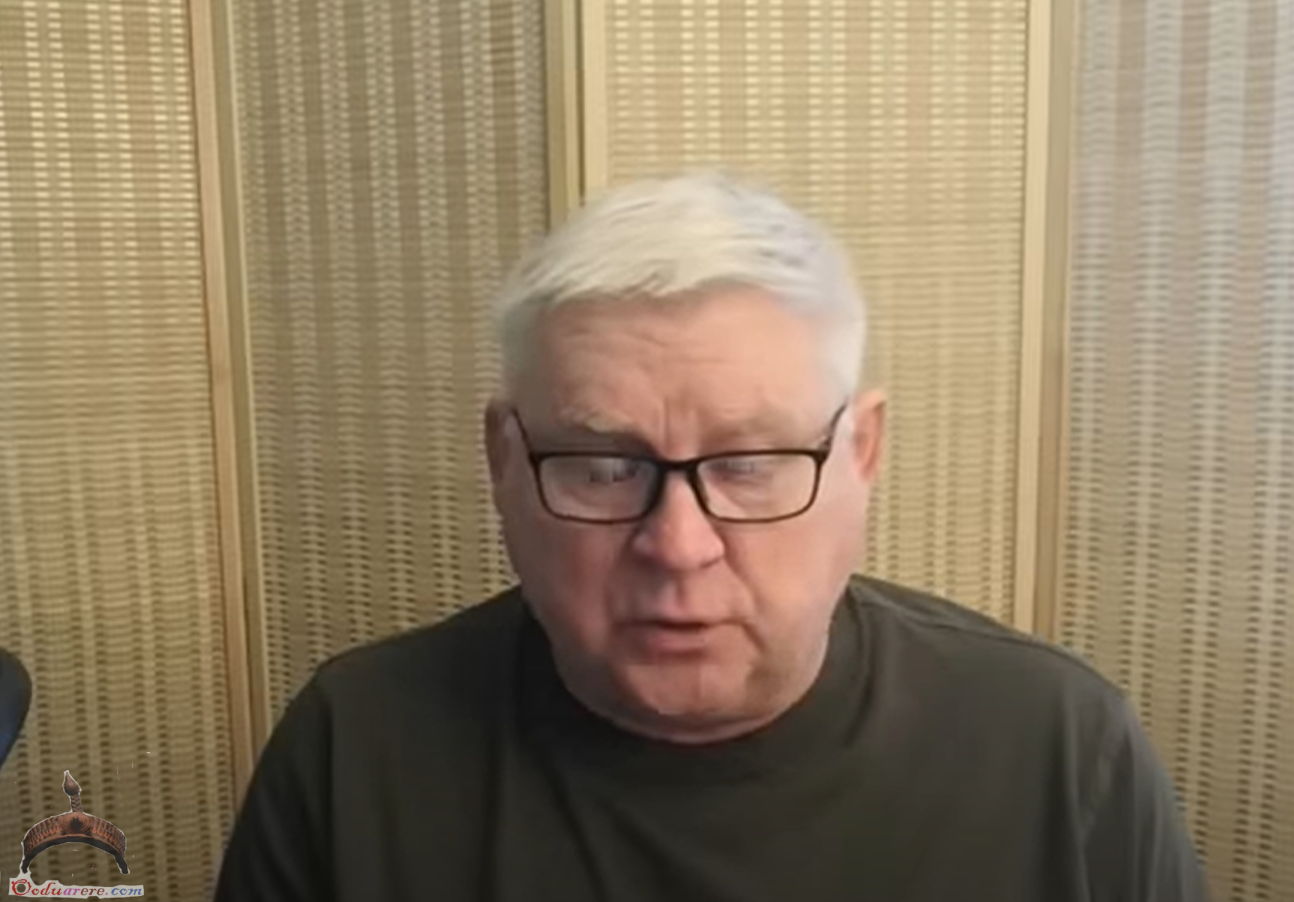The situation in Eastern Ukraine may undergo a dramatic transformation due to the end of the so-called “anti-terrorist operation” (ATO) on April 30, and the subsequent “reformatting” of military operations in Eastern Ukraine, which could spell either an escalation or, rather to the contrary, the resumption of the peace process that has been moribund since the second round of Minsk Accords signed in the early months of 2015. US emissary Volker’s mission to Ukraine, which included meetings with Russia’s curator of Ukraine policy Surkov, did not lead to visible progress on any issues. The idea of peacekeepers had similarly bogged down in irreconcilable differences. Whereas Russia and the breakaway republics seek peacekeepers as a means to separate the warring parties, for Ukraine and the US they were seen as a means to isolate the republics from Russia as a prelude to their military conquest.
Worse, 2018 has seen another round of deterioration in West-Russia relations. It was driven by the most likely false-flag attack against the Skripals and the Douma chemical weapons attack staged or possibly faked by Jaysh al-Islam which led to a joint US-British-French cruise missile strike against several locations in Syria following prolonged US-Russia “deconfliction” to prevent an outbreak of a shooting war between the two leading world powers. The Trump administration moreover made its impatience felt by imposing yet another round of restrictive measures on Russia and Russian actors, most notably on Yuri Deripaska’s Rusal conglomerate, one of the world’s biggest producers of aluminum. Naturally this has given rise to fears that the escalation in Syria could easily lead to an escalation in Ukraine, instigated either by directly by Kiev or indirectly by the United States.
Indeed March and April of 2018 did see round of escalation in the Ukraine-Russia and Ukraine-Donbass conflict. Ukrainian shelling of Lugansk People’s Republic (LPR) and Donetsk People’s Republic (DPR) positions has increased, to the point of targeting the crucially important Lugansk water works whose employees’ bus was targeted by sniper fire. There have been a number of clashes between patrols and raiding teams in the no-man’s land separating the warring parties, and several terrorist attacks within LPR and DPR themselves. But the hostilities were not limited to the Donbass. Ukraine seized two ships belonging to private Russian actors, Nord fishing boat in the Sea of Azov, and a cargo ship belonging to Trans Services Maritime in the port of Odessa. The crew of Nord was held and interrogated by the SBU, and released into the custody of Russian diplomats only after prolonged detention. The Nord’s seizure in the Sea of Azov suggests Kiev is willing to risk direct confrontation with Russian forces in international waters, and the Crimea Bridge’s imminent completion certainly makes it an attractive target.
Can one discern a linkage between the Syria and Ukraine escalations? So far there are no indications that the West is treating Ukraine as part of the same game as Syria, and Ukraine’s efforts to make it part of that game are failing. If the escalation in Syria were part of some grand plan in which both Ukraine and Syria were pawns on the same chessboard, one would have expected a similar escalation, by the same three countries that launched strikes against Syria, in Ukraine. This could have taken the form of more NATO “trainers” in Ukraine, greater NATO warship presence in the Black Sea including on the Sea of Azov, a new round of large-scale military exercises in Eastern Europe. Yet none of these possible scenarios have appeared. Even the widely-promoted delivery of Javelin ATGMs to Ukraine cannot really change the current situation.
A unilateral escalation route also appears unlikely, as. Ukraine’s armed forces continue to suffer from massive problems with recruitment, training, equipment, and morale, as defections from the UAF to the breakaway republics are continuing. Direct military clash between Russia and Ukraine would quickly lead to a rapid Ukrainian defeat and possibly even a regime collapse before Western powers could find a meaningful way to respond.
Moreover, in response to the Donbass escalation discussed above, Russian forces from the Southern Military District conducted drills near Rostov with the aim of dissuading the UAF from entertaining notions that Russia was too distracted by the events in Syria to respond to any forcible Kiev attempt to deprive the Donbass of its autonomy. These maneuvers also had the effect of Kiev lodging predictable complaints Russia is preparing to invade Ukraine, complaints which were not echoed by Western governments. The US State Department did condemn the shelling and sniping at the Lugansk water filtration plant, though it also called on “both sides” to refrain from escalating the situation.
All of the above suggests that if the West does have a united position on Ukraine, it is to minimize costs associated with supporting the regime, both the direct ones in the form of expending resources on Kiev and indirect ones in the form of the cost of confrontation with Russia. That message is being sent to Kiev using the collective cold shoulder Poroshenko has been encountering lately whenever he reaches out to Western institutions. Not only are the avenues of Ukraine funding drying up, criticism of the “Kiev regime” is on the increase. The US State Department’s annual human rights report has accused the SBU of torture, disappearances, and unlawful detentions. Even the Atlantic Council, a longtime mouthpiece of NATO, has suddenly found the empowerment of Ukrainian neo-Nazis worrisome, criticism which indirectly reflects on the current Poroshenko-Groysman ruling tandem.
So in the end, Kiev’s recent actions appear to be little more than a bid for continued relevance in a world that has long moved on. It’s the lack of attention that’s driving these escalations, and they will continue but possibly with a different aim in mind. In the initial post-Maidan years, Kiev sought to escalate the conflict with Russia in order to secure Western financial and military aid, perhaps even trigger a Western military intervention. Today, they are meant mainly to remind the West that should Poroshenko fall, the ensuing turmoil “would benefit Putin”, and therefore dissuade the West from seeking Poroshenko’s replacement. This tactic is liable to remain effective for as long as the West and Russia remain in conflict. But Poroshenko’s short-term self-interest is once again to the long-term detriment of Ukraine, because it will also make Ukraine’s next regime change all the more traumatic. On the plus side, Ukraine’s unpredictability and propensity for aggression is promoting Donbass’ growing independence from Kiev. Recent newspaper reports suggest coal and steel from the Donbass are now reaching Turkey…
 Ọmọ Oòduà Naija Gist | News From Nigeria | Entertainment gist Nigeria|Networking|News.. Visit for Nigeria breaking news , Nigerian Movies , Naija music , Jobs In Nigeria , Naija News , Nollywood, Gist and more
Ọmọ Oòduà Naija Gist | News From Nigeria | Entertainment gist Nigeria|Networking|News.. Visit for Nigeria breaking news , Nigerian Movies , Naija music , Jobs In Nigeria , Naija News , Nollywood, Gist and more









